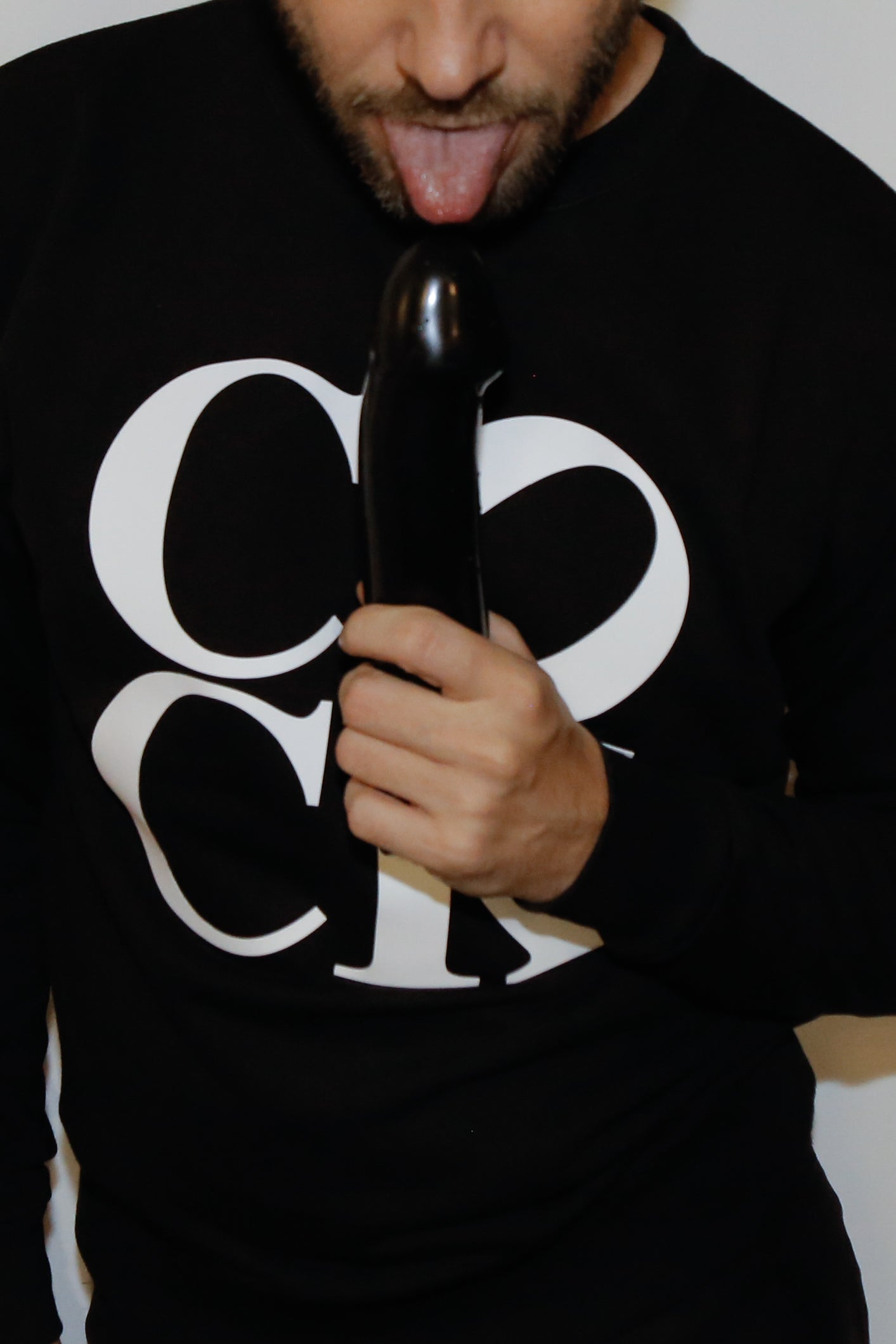
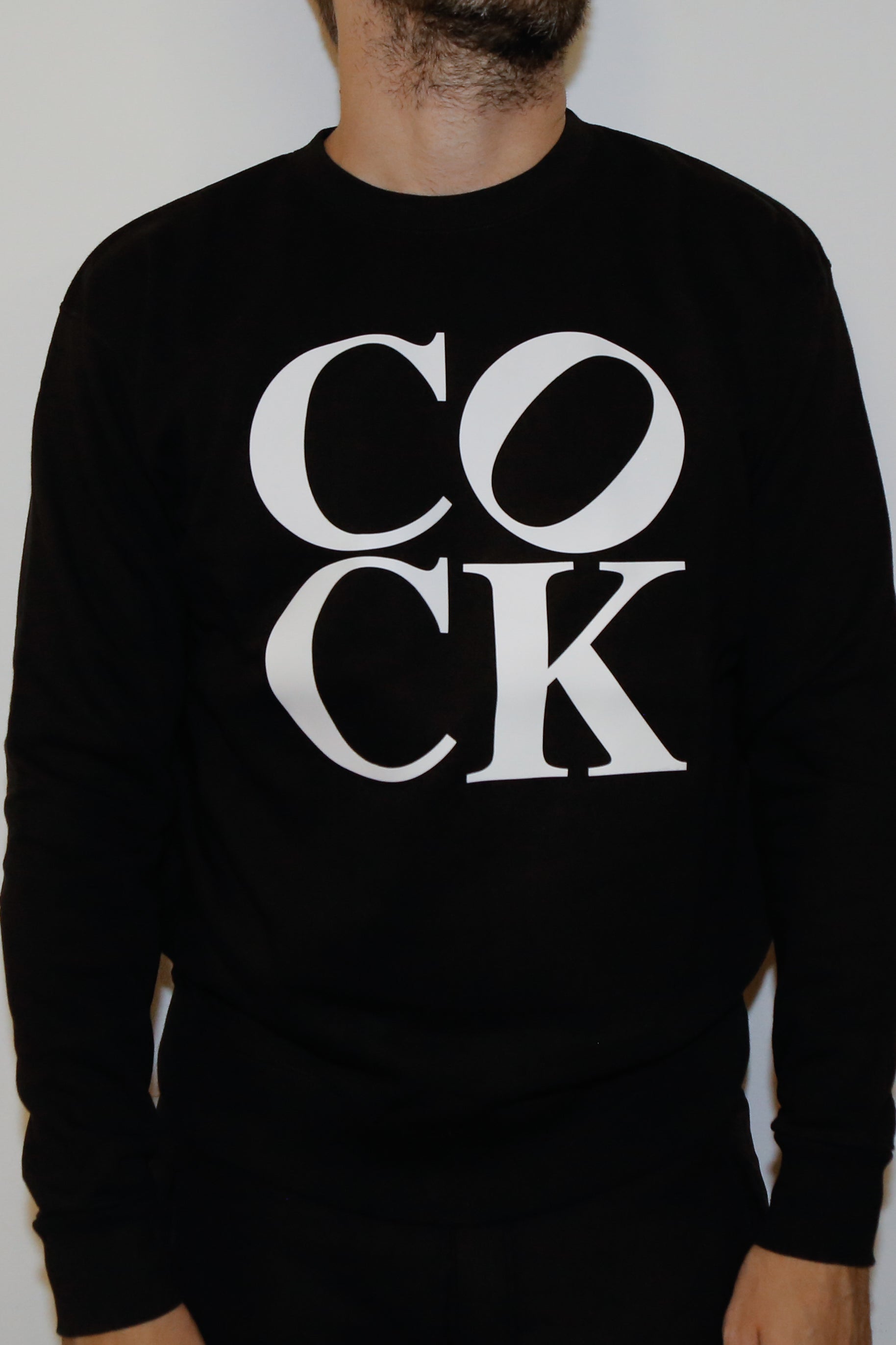
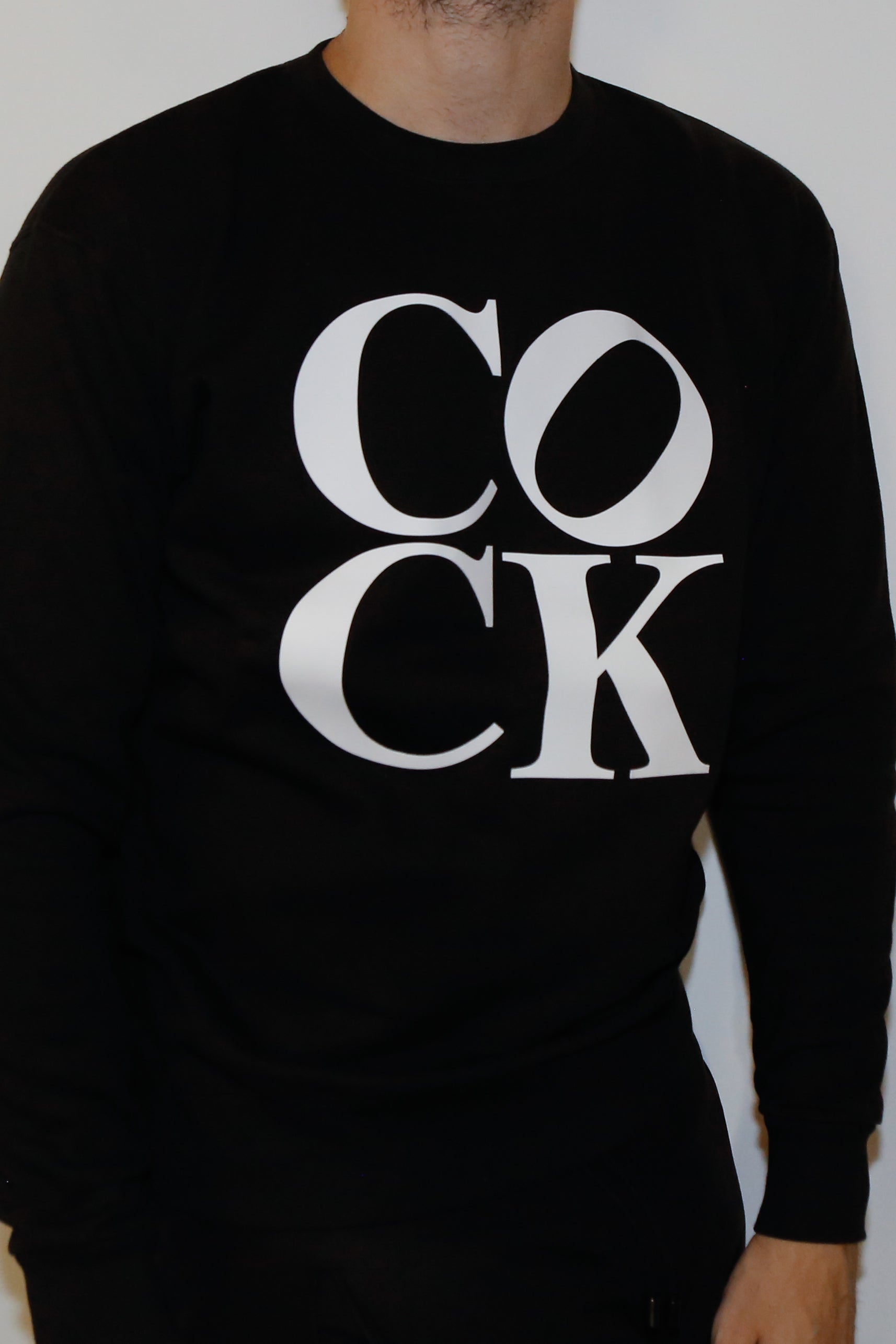
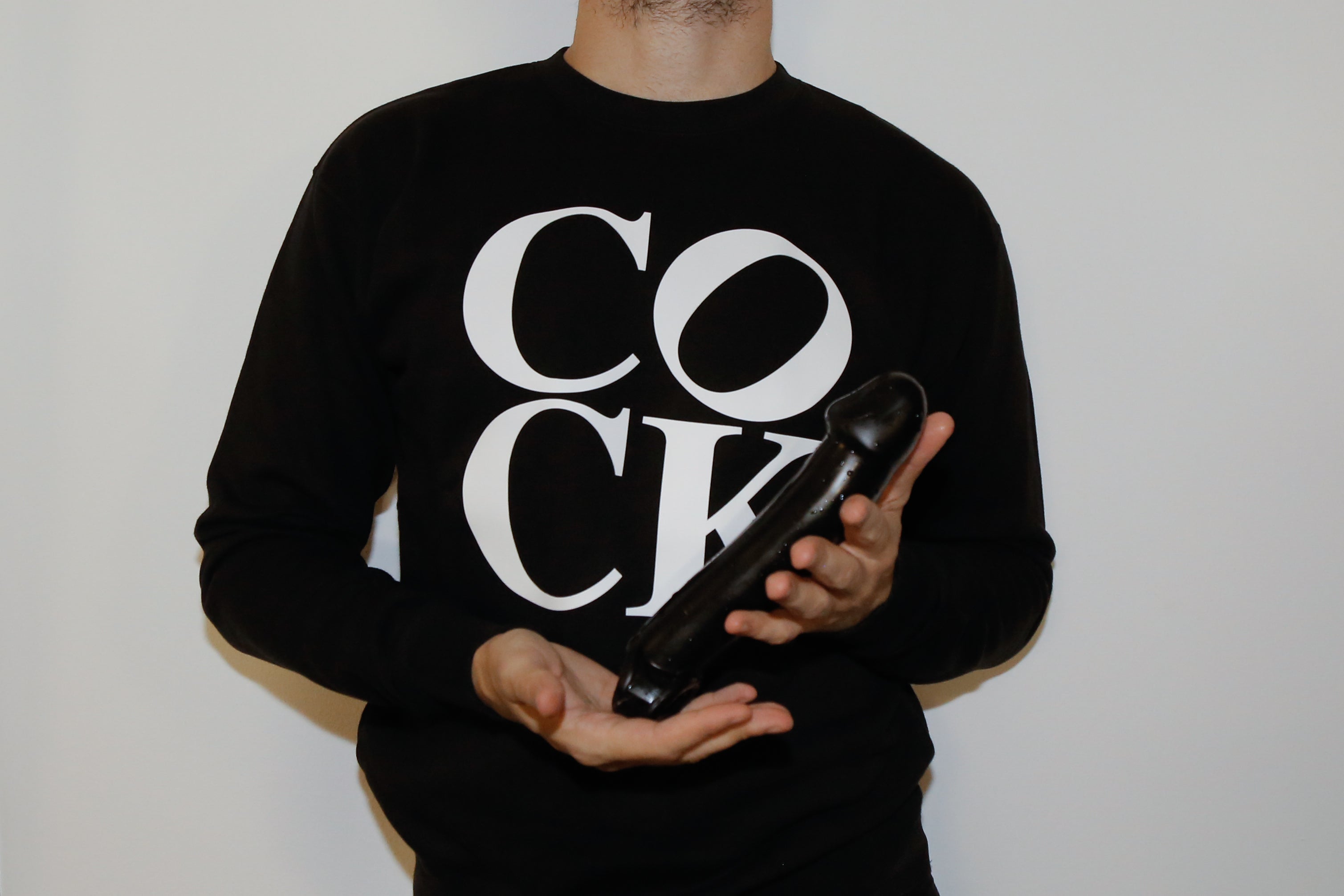
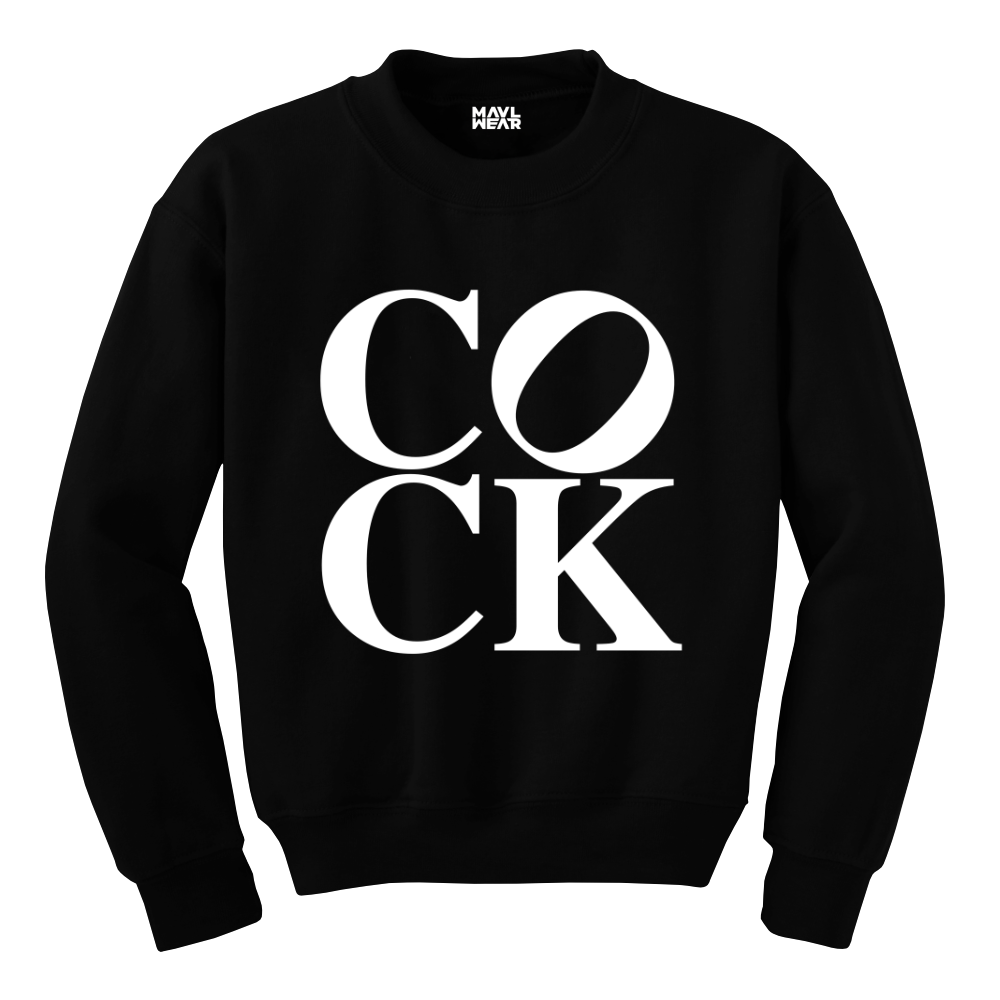
Sweatshirt, Cock - French Terry, Premium Quality
Tax included. Shipping calculated at checkout
The classic MAYL Wear sweatshirt in black with Cock industrial thick rubber print, designed by Piotr Kopertowski with a regular fit in a thick 100% Japanese cotton. Featuring a crew neck and ribbed collar, cuffs, and waistband. Pre-washed for minimum shrinkage.
QUALITY INFO
What is the Difference Between French Terry Fabric and Fleece?
If you’re looking for the most comfortable material for your loungewear, you might be trying to choose between French terry fabric and fleece. Both of these low-maintenance materials are considered knit fabrics and offer comfort, softness, and style, and their casual vibe makes them best suited to running errands or heading to and from the gym. Both French terry fabric and fleece are soft and don’t require extensive care, but there are also distinctive differences between the materials that impact their weight, moisture-wicking capabilities, breathability, and appearance. Although you’ll be comfortable no matter which material you choose for your clothing, you might be wondering what is the difference between French terry fabric and fleece and how should you decide which one to purchase?
What are knit fabrics?
Knit fabrics, which include French terry fabric and fleece, are different from woven fabrics in terms of both the technique for weaving the material together as well as the stretch offered by each fabric. Woven fabrics involve weaving straight threads of yarn together, creating a pattern that looks similar to a picnic basket or checkerboard; woven fabrics usually do not have much give or stretch. By contrast, knit fabrics use interconnecting loops that reduce fraying and give the fabric additional ability to stretch. Knit fabrics are highly popular for use in clothing, as they enhance the wearer’s comfort by allowing the clothing to stretch and move with the wearer’s body. Each of the dozens of different types of knit fabrics has different qualities and a different amount of stretch, but two of the most popular types include French terry fabric and fleece. French terry and fleece are single knit fabrics, which mean they consist of a single yarn that is knitted together with loops. Double knit fabrics utilize two layers of single knit fabric and weave them together to create an intermeshing pattern, while warp knits create a zigzag pattern using multiple loops of yarn that are knit together. These fabrics typically have more stretch than double knits or single knits.
What is French terry fabric?
French terry fabric is a soft, comfortable fabric that is usually made mostly or entirely of cotton. French terry fabrics are frequently made of 100 percent cotton, but they can also be created by blending cotton fibers with a small amount of spandex, lycra, rayon, or polyester, as well as organic soy or cotton fibers. French terry fabric first came into use beginning in the 1980s, and it has since become extremely popular, so it is likely that most people in the United States have at least one article of French terry clothing in their closet without even knowing it. As noted above, French terry fabric is a knit fabric; similar to jersey fabric, another popular knit, the material has loops of yarn on one side of the fabric and soft piles of yarn on the other. French terry is commonly used in sweatpants and sweatshirts, where the soft piles of yarn are on the inside of the fabric where the material touches the body, and the smoother side of the fabric is on the outside of the garment. The comfortable, plush, soft texture created by French terry perfectly suits loungewear basics like sweatpants and cozy sweatshirts. As a midweight fabric, French terrier has a heavier weight than the material used to make most t-shirts, but it is lighter than the fabrics that would be used to make sweatpants or joggers suitable for cold weather. The fabric is highly versatile and can keep you cool in warmer weather or warm in cooler weather.
What is fleece fabric?
Fleece fabric, often called sweatshirt fleece, is another popular material used to make loungewear and casual clothing like sweatshirts and sweatpants. Like French terry fabric, yarn loops are created on the back side of the fabric when fleece is made, and this becomes the inside of the garment. However, the main difference between the two fabrics occurs during the manufacturing process. When making fleece material, the yarn loops are shredded and cut up, which creates the soft, fuzzy feeling many people associate with sweatshirts and sweatpants. This makes the fabric warmer and less breathable than French terry fabric. Some people confuse French terry fabric with sweatshirt fleece because both fabrics are commonly used to make sweatshirts and sweatpants.
Which fabric is more moisture-wicking?
French terry and fleece fabrics are extremely comfortable, but that doesn’t mean you’ll necessarily want to do an intense workout in either one. When comparing moisture-wicking capabilities, French terry fabric has the advantage. Because of the way the fabric is made, leaving yarn loops on the inside of the fabric, French terry fabric is considered somewhat moisture-wicking and breathable, especially when compared to fleece. However, most people prefer to wear French terry fabrics as part of their loungewear, as the material is not as well suited to the sweat and intensity of workouts as other fabrics that are specifically designed as active wear, such as bamboo performance fabrics.
Which fabric keeps you warmer?
Both French terry and fleece will keep you warmer than the fabric used to create a t-shirt or workout clothes, but there are some distinct differences between the two fabrics. In general, French terry fabric is more of a midweight fabric and is lighter weight than fleece, which is generally considered a heavy weight fabric. Because of the way that sweatshirt fleece is manufactured, the material is not as breathable as French terry fabric and does not have moisture-wicking properties, which means it will likely keep you warmer. French terry fabric is manufactured in a way that allows it to maintain breathability and moisture-wicking properties, so it keeps the wearer cooler. However, there is variation within each material, and it is possible to find heavier weight French terry items and lighter weight fleece. As a rule of thumb, French terry is likely to keep you cooler than fleece, which will keep you warmer than French terry. However, which fabric to wear will depend on both the weather/environment and the person, as each person prefers to maintain a different temperature. When temperatures are cool but not cold, the average person is more likely to be comfortable in French terry than sweatshirt fleece. On the other hand, people who are frequently chilly or feel colder than others are more likely to be comfortable in sweatshirt fleece in these temperatures. By contrast, a person who usually feels warmer than others will want to opt for a lighter weight fabric like French terry which will keep you cool in warmer temperatures and warm in cooler temperatures.When should French terry and sweatshirt fleece be worn?
French terry is a highly versatile fabric that can be worn in many different situations, while sweatshirt fleece is predominantly used to create loungewear like sweatpants or sweatshirts. French terry may be used in some activewear, particularly clothing that is worn to cover up gym clothes or stay warm after a workout, but it is also used in casual separates that are good for running errands or hanging out on the weekend. French terry fabric is commonly used to make everything from sweatpants to pullovers, hoodies, and shorts, so most people are likely to find at least one piece of French terry in their closets. On the other hand, sweatshirt fleece is used entirely to make casual clothing and especially loungewear like sweatshirts and sweatpants. The thick, heavy nature of the fabric, as well as its casual look, means that fleece is not suited to more tailored pieces that would be worn on a night out or business occasion. Both fabrics are mostly used in casual clothing and are best suited to casual purposes like running errands, relaxing, or on the way to and from the gym.
Do French terry or fleece wrinkle?
If you love fabrics that are easy to wash and wear, French terry and sweatshirt fleece certainly meet the mark. Both French terry and fleece are wrinkle resistant as a result of the inherent qualities of natural fabrics and their natural stretch. Although any fabric will wrinkle in the right situation, like if left to dry in a pile at the bottom of your closet, French terry and fleece are about as wrinkle resistant as they come and will stay wrinkle free with minimal effort. Wrinkles can usually be removed by placing the articles of clothing in the dryer for a few moments.
How should I clean French terry and fleece fabrics?
Both French terry and fleece fabrics are extremely low maintenance when it comes to cleaning. There’s no need to dry clean, hand wash, or follow special washing instructions for either fabric. Both types of fabric can be washed in the washing machine (ideally in cold water) and should be tumble dried on low for best results.
CARE INSTRUCTIONS
Few tips and restrictions on how to care about our cotton garments and how to keep the quality of our print in a good state.
- highly recommended to hand wash inside out- if washing in the machine keep the lowest temperature possible (30˚C max)
- do not bleach or tumble dry
- wash the apparel with similar colors and line dry (do not dry black garments under the sun)
- iron any cotton garment inside out with a low temperature
We know that hand wash can take time but is worth to do it. The life of our cotton fabric and quality of the prints can stay in really good shape for 4-6 years.
Choose options






